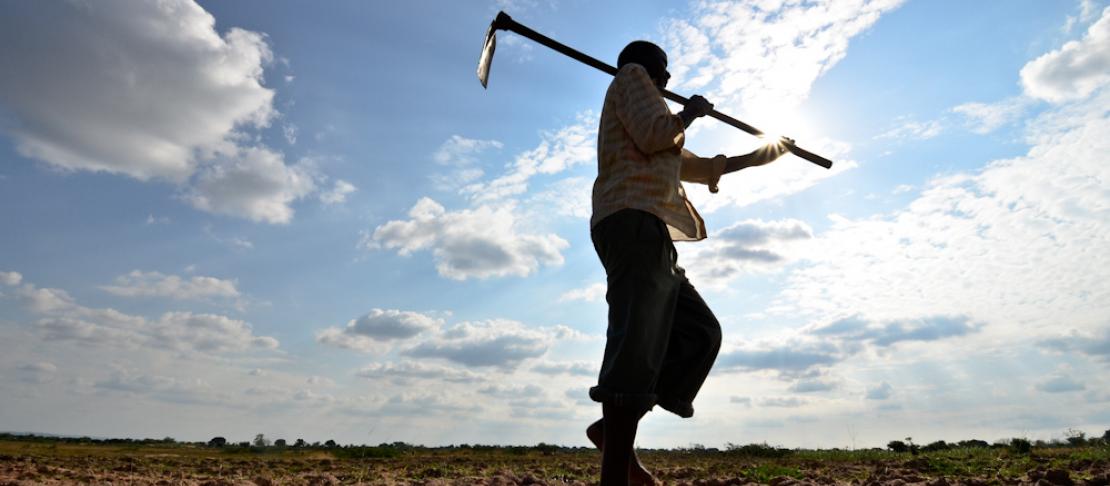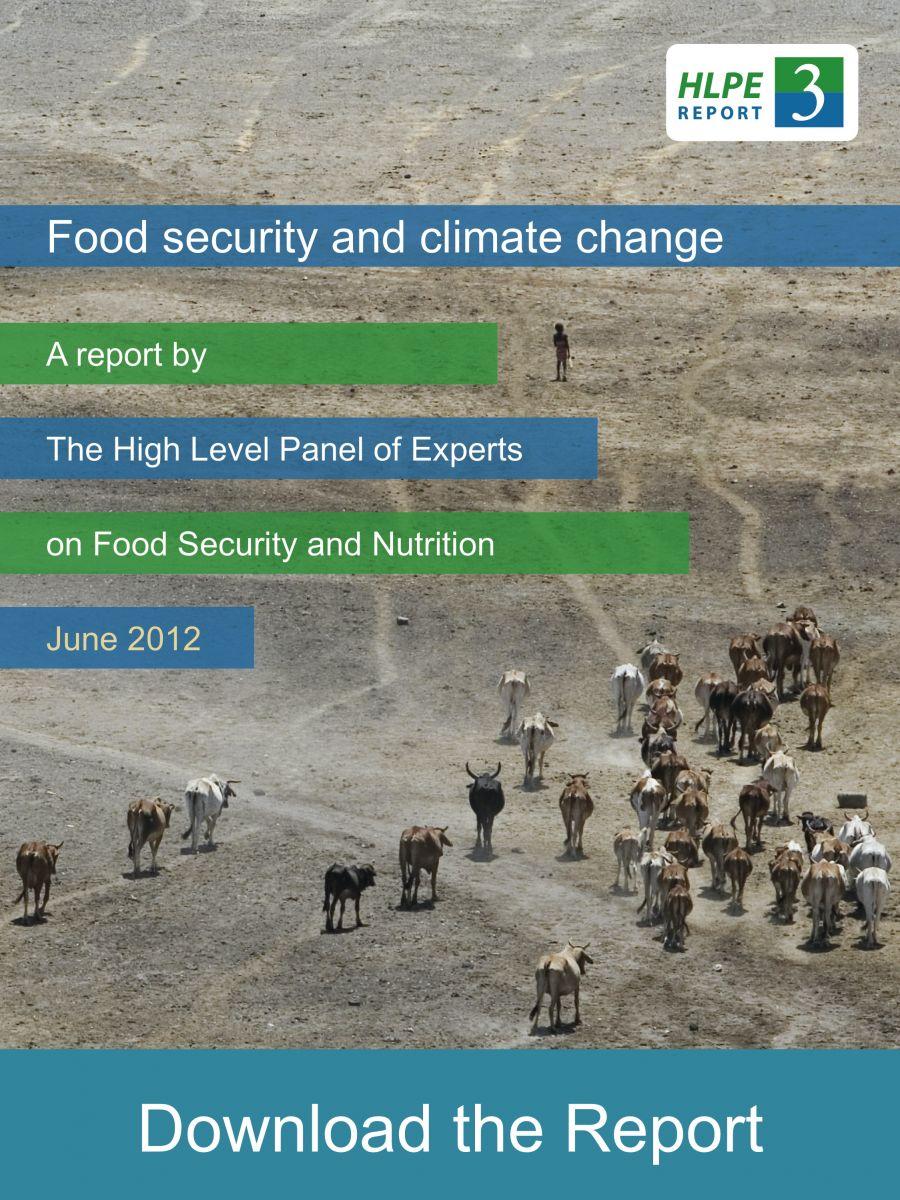Report on Food Security and Climate Change for the Committee on World Food Security

Project Description
 The science-policy interface of the UN Committee on World Food Security (CFS) is the High Level Panel of Experts on Food Security and Nutrition (HLPE), established in 2010. The HLPE aims to improve the robustness of policy making by providing independent, evidence-based analysis and advice at the request of CFS. CCAFS Theme 4.3 led an international team of experts, which provided project leadership and co-authored the report. The report was released in October 2012 at FAO Headquarters in Rome and was also presented during a parallel session in the Eighteenth Session of the Conference of the Parties, UNFCCC (COP 18), in Doha, Qatar in December, 2012.
The science-policy interface of the UN Committee on World Food Security (CFS) is the High Level Panel of Experts on Food Security and Nutrition (HLPE), established in 2010. The HLPE aims to improve the robustness of policy making by providing independent, evidence-based analysis and advice at the request of CFS. CCAFS Theme 4.3 led an international team of experts, which provided project leadership and co-authored the report. The report was released in October 2012 at FAO Headquarters in Rome and was also presented during a parallel session in the Eighteenth Session of the Conference of the Parties, UNFCCC (COP 18), in Doha, Qatar in December, 2012.
According to the report, food insecurity and climate change are, more than ever, the two major global challenges humanity is facing, and climate change is increasingly perceived as one of the greatest challenges for food security. This is why in 2010, the Committee requested the HLPE to work on Climate Change and Food Security and more specifically to review existing assessments and initiatives on the effects of climate change on food security and nutrition, with a focus on the most affected and vulnerable regions and populations and the interface between climate change and agricultural productivity, including the challenges and opportunities of adaptation and mitigation policies and actions for food security and nutrition.
Outcomes
Some key observations made by the HLPE towards challenges to World Food Security include:
- Climate change affects plants, animals and natural systems in many ways. Changes in temperature and rainfall regime may have considerable impacts on agricultural productivity.
- Agriculture is an important driver of climate change. Crop and livestock agriculture globally accounts for about 15 percent of total emissions today.
- Adaptation of the food system will require complex social, economic and biophysical adjustments to food production, processing and consumption. Such changes will be most difficult for the poorest and most vulnerable regions and populations.
- There are important uncertainties in the way climate will change, magnified at regional and local scales where individual decisions are made. Adaptation should thus be seen in the broader context of building a more resilient food system.
Outputs
Food security and climate change (Report)